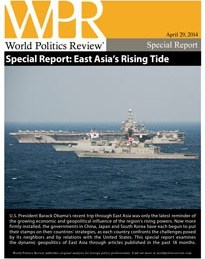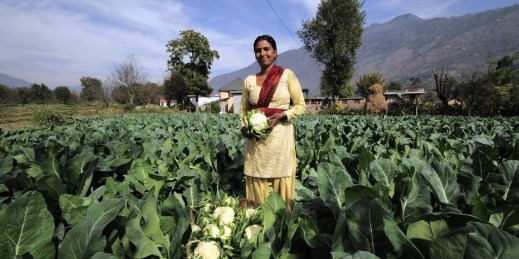
U.S. President Barack Obama’s recent trip through East Asia was only the latest reminder of the growing economic and geopolitical influence of the region’s rising powers. Now more firmly installed, the governments in China, Japan and South Korea have each begun to put their stamps on their countries’ strategies, as each country confronts the challenges posed by its neighbors and by relations with the United States. This special report examines the dynamic geopolitics of East Asia through articles published in the past 18 months. Regional Perspectives China’s Slowing Growth May Help Rebalance Regional RoleBy Iain MillsAug. 12, 2013 Beating Expectations, […]






